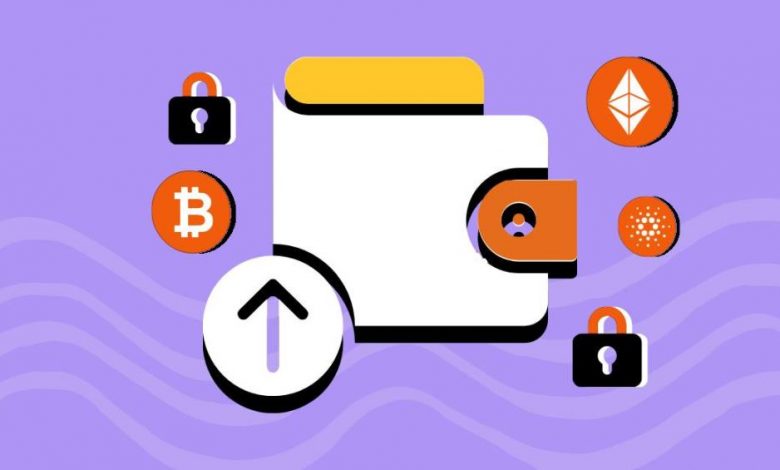Cryptocurrency and Cybersecurity: Protecting Your Digital Assets

Cryptocurrency and Cybersecurity: Protecting Your Digital Assets
Introduction
In recent years, the popularity of cryptocurrencies has surged, with more and more people investing in digital assets like Bitcoin, Ethereum, and Litecoin. However, while the potential for high returns is enticing, it’s important to be aware of the risks associated with owning cryptocurrency. One such risk is cybersecurity threats. In this blog post, we will discuss the importance of protecting your digital assets and provide valuable tips on how to enhance your cryptocurrency security.
Why is Cryptocurrency Security Essential?
1. Increased Threat of Cyberattacks
With the growing popularity of cryptocurrencies, cybercriminals are constantly developing new techniques to steal digital assets. From phishing scams and malware attacks to hacking exchanges, the risks are real. Therefore, it is crucial to be proactive and take necessary precautions to safeguard your investments.
2. Irreversible Transactions
Unlike traditional banking systems that provide protection against fraudulent transactions, cryptocurrency transactions are irreversible. Once a transfer is made, it cannot be undone. Hence, if your digital assets are compromised, recovering lost funds might be extremely challenging or even impossible.
3. Lack of Regulation
Cryptocurrencies operate in a decentralized environment, making them vulnerable to fraud and scams. Unlike traditional financial institutions that are regulated by government bodies, the digital asset space lacks comprehensive regulations, leaving investors exposed to potential risks.
Protecting Your Digital Assets: Effective Tips
1. Secure Your Wallet
Choosing a reliable cryptocurrency wallet is the first step towards securing your digital assets. Opt for wallets that offer robust encryption, two-factor authentication (2FA), and offline storage options. Hardware wallets, like Ledger Nano S and Trezor, are highly recommended for enhanced security.
2. Keep Software Up to Date
Regularly updating your cryptocurrency software, such as wallets or trading platforms, is crucial as developers release updates to patch security vulnerabilities. By staying up to date, you protect yourself against potential exploits that hackers may take advantage of.
3. Implement Strong Passwords
Your password should be complex, unique, and difficult to guess. Avoid using personal information or common phrases. Instead, use a combination of uppercase and lowercase letters, numbers, and symbols. Additionally, consider using a password manager to securely store and generate unique passwords for all your accounts.
4. Enable Two-Factor Authentication (2FA)
Two-factor authentication adds an extra layer of security to your accounts. Enable 2FA wherever possible to ensure that even if your password is compromised, an additional verification step will be required to access your account.
5. Beware of Phishing Attempts
Phishing is a common tactic used by cybercriminals to trick individuals into revealing sensitive information. Be cautious of suspicious emails, messages, or websites asking for your cryptocurrency details. Always verify the authenticity of communication and double-check URLs before entering any sensitive information.
Frequently Asked Questions (FAQs)
Q1. How can I backup my cryptocurrency wallet?
A1. To backup your cryptocurrency wallet, you can either use the backup feature provided by your wallet provider or manually copy the wallet’s seed phrase (a series of words) onto a secure offline location like a hardware wallet or a piece of paper.
Q2. Is it safe to store cryptocurrency on exchanges?
A2. Storing cryptocurrency on exchanges can be risky as they are more prone to hacking attempts. It’s generally recommended to transfer your digital assets to your personal wallet for better security.
Q3. What should I do if my cryptocurrency is stolen?
A3. If your cryptocurrency is stolen, report the incident to the appropriate authorities and provide them with all the necessary information. Depending on the circumstances, they may be able to assist in tracking down the stolen funds.
Q4. Are there insurance options to protect my cryptocurrency holdings?
A4. While the cryptocurrency insurance market is still developing, some companies offer coverage for digital assets. Research and consider insurance options that align with your security needs.
Conclusion
Securing your digital assets is of utmost importance to protect your investments in the world of cryptocurrencies. By implementing the tips mentioned in this article, you can minimize the risks associated with cyberattacks and enhance the security of your cryptocurrency holdings. Stay informed, stay proactive, and stay secure!



